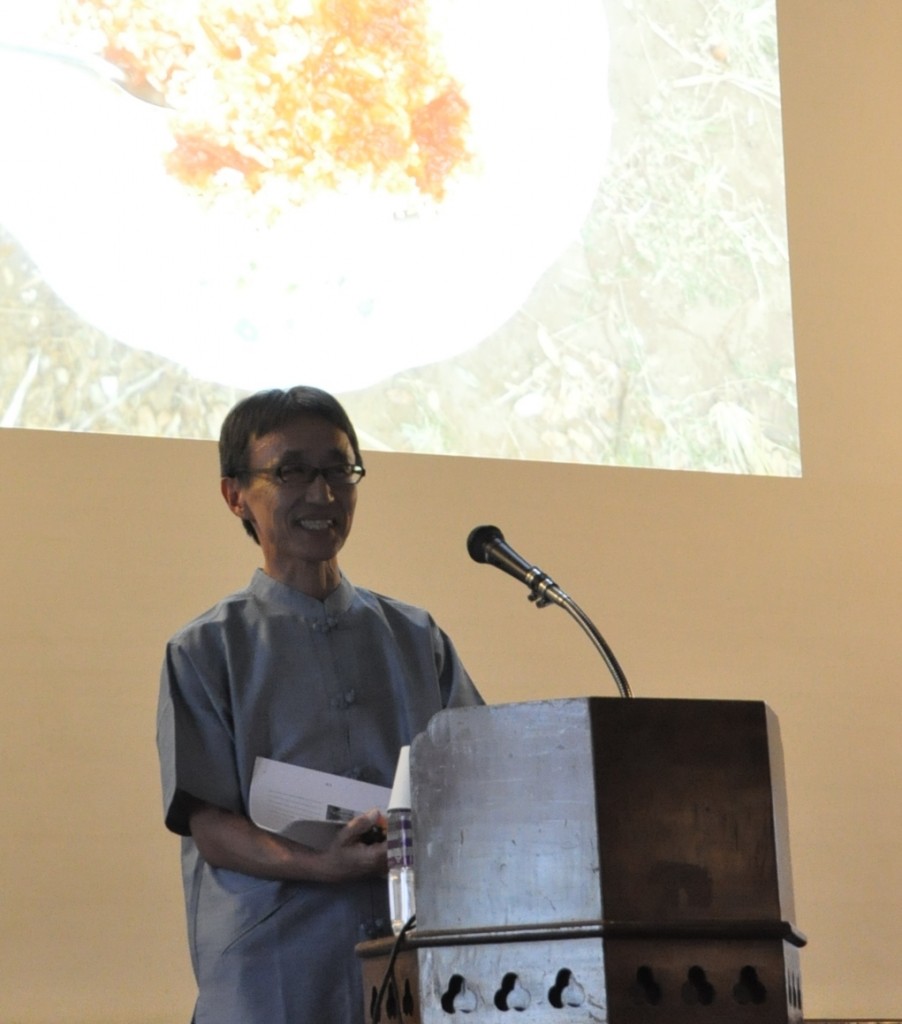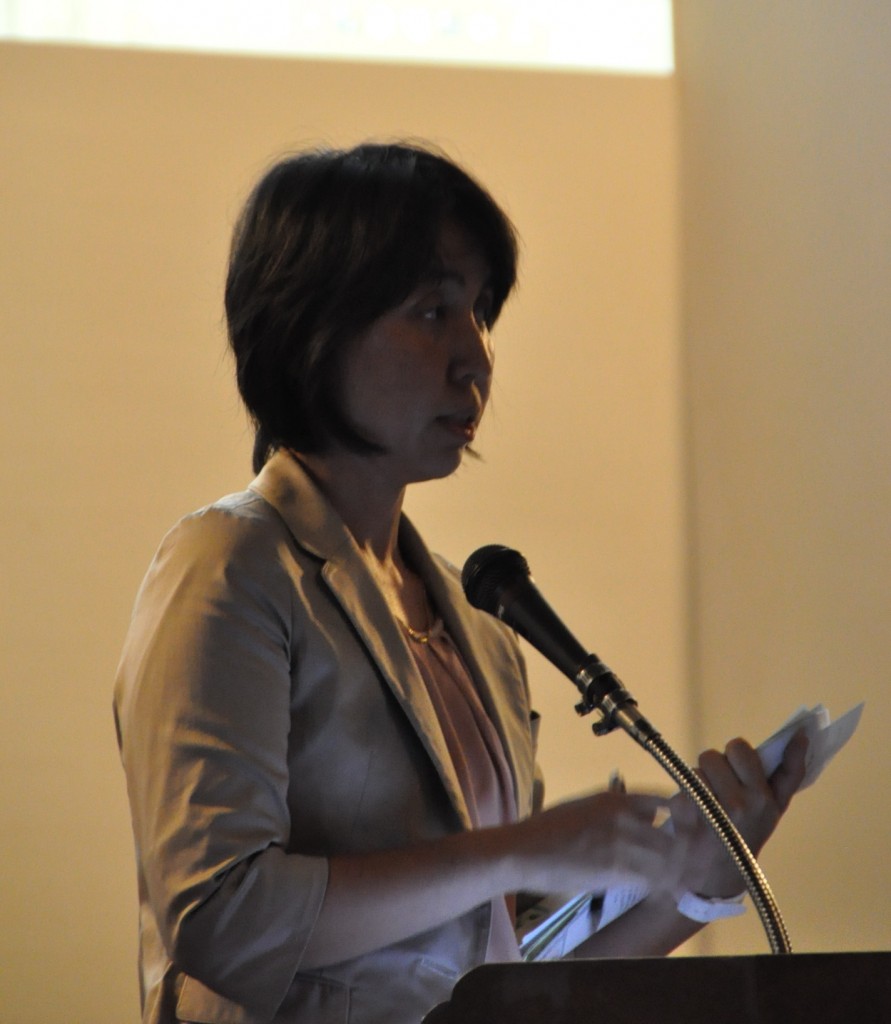Center for Interdisciplinary Study of Monotheistic Religions(CISMOR)Doshisha University
> Public Lectures > International Cooperation and Religion – From the viewpoint of the project site of Official Development AssistancePublic Lectures
International Cooperation and Religion – From the viewpoint of the project site of Official Development Assistance
| Date: |
2015/06/19 16:30-18:30 |
|---|---|
| Place: | Doshsiha Chapel, Imadegawa Campus, Doshisha University |
| Lecture: |
Takafumi Miki ( former Project Coordinator of JICA) Liulan Wang (Associate Professor of Center for Integrated Area Studies, Kyoto University / The Hakubi Projact, Kyoto University) |
| Summary: | |
|
Mr .Miki discussed the various problems issues faced when engaging in international cooperation. First, he described Japanese overseas development aid (ODA). While the government funds it, the ODA symbol contains the words “From the People of Japan.” The funding for its operations is provided neither by politicians nor bureaucrats, but by the nation – it is important to keep this point in mind. Mr. Miki was asked why Japan provides support in Japan and elsewhere. He pointed to August 1945 when the country lost World War II. Following the war, the damage was so great that Japan could not recover on its own. Funding from programs such as Economic Rehabilitation in Occupied Areas (EROA) assisted Japan and made recovery possible; this is the reason that it engages in international cooperation. The World Bank funded infrastructures such as the Shinkansen bullet train, Kurobe Dam, and Tomei Expressway, which Japan repaid in 1990. First, international cooperation transcends national borders and takes various forms: sometimes between states, and other times between governments and civilians. There may be two or more countries involved. Currently, the effectiveness of cooperation between developing countries (South-South cooperation) is receiving attention. Furthermore, sometimes countries that once received aid provide it to others after developing economically. For example, Korea became an Organization for Economic Cooperation and Development (OECD) Development Assistance Committee (DAC) member and actively engages in ODA activities. When a network for people with disabilities was created in Thailand as part of the Asia-Pacific Development Center on Disability, Thailand, which was an aid-receiving country, also offered funds and contributed to creating a network with other Asian countries. Measures addressing poverty and hunger are a major part of international cooperation. In Africa, starvation exists due to conflict, drought, and so on. International cooperation also takes the form of disaster relief and recovery support following earthquakes and floods. There is a system in place so that when an affected country requests aid, registered personnel (experts) can be dispatched in the form of a disaster relief team. Furthermore, there is medical support, refugee support, and development support (technological cooperation and infrastructure improvement). Mr. Miki contributed to an ODA project in Tanzania regarding agricultural irrigation. While Japan is providing support, the project is entirely funded by the Tanzanian government. Japan International Cooperation Agency (JICA) experts are dispatched and stationed in the Tanzania’s equivalent organ. As a result of steady surveys and technological assistance, people in Tanzania have mastered irrigation techniques and are growing rice. In this way, there is a need for understanding and consideration regarding the social norms and customs in the area that received assistance. There are various religions and social institutions in each country. For example, while Friday is a workday in Japan, in countries where Islam is practiced, it is often a day off. Even if it is a workday, consideration is given to Muslims, and people might take long breaks to worship. Dr. Wang, who conducted research from a cultural anthropology perspective, offered comments on Miki’s presentation. According to Dr. Wang, development through ODA and similar organizations can have a negative influence on the people who are on the receiving end. In order to address this, there is a need to construct networks based on dialogue. Through field surveys, Wang has found that those who are marginalized are left by the wayside in politico-economic logic, and discussions of national interest are saved and come to support themselves through religion. It is important to not just understand them as weak and marginalized but also learn from their way of living. Kotaro Hiraoka Postdoctral Fellow, CISMOR |
|

